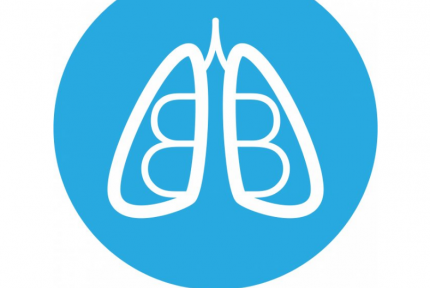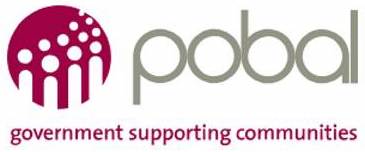The Asthma Society of Ireland Hayfever Campaign is kindly supported by ALK and A. Menarini. As part of the campaign, the Asthma Society pollen tracker will provide daily updates on pollen levels around Ireland including regional prediction levels for the current and following day.
‘Pollen Season’ runs from now until September, and people with asthma are advised to ensure their asthma and hayfever are well managed. The pollen tracker can help people to recognise the days when they need to take additional precautions to manage their asthma and hayfever.
Our Pollen Tacker will run from May 2023 to August 2023
Check here daily for your pollen count update!
Our pollen tracker updates daily showing the pollen levels across the 4 provinces. It is important to check the tracker each day to best manage your asthma and hay fever.
Up to 80% of people with asthma also have hayfever. If you would like advice on how to avoid allergy triggers and cope with allergic rhinitis please contact our Asthma Adviceline on 1800 44 54 64. You can also now use our free WhatsApp Nurse messaging patient service. For more information click here.
Our Pollen Tracker service is kindly supported by ALK and A. Menarini
Top Tips to Survive Hayfever Season
-
Speak to an experienced respiratory nurse from the Asthma Adviceline service on 1800 44 54 64 and put a hayfever management plan in place.
-
WhatsApp message the Asthma and COPD patient support service on 086 059 0132 for any questions/queries on asthma, hayfever and COVID-19 symptoms.Speak with a healthcare professional about taking medication to prevent/reduce symptoms. Don’t wait until you feel unwell. Early action is key to prevent an escalation of symptoms.
-
Keep windows closed at night time or when the pollen count is high.
-
Monitor the pollen tracker and minimize time spent outdoors when the pollen count is high.
-
Apply vaseline around nostrils when outdoors in order to trap pollen.
-
Wear wraparound sunglasses to minimize levels of pollen irritating your eyes. Splash your eyes with cold water to help flush out pollen and soothe and cool your eyes.
-
Shower, wash your hair and change your clothes if you have been outdoors for an extended period of time.
-
Exercise in the morning rather than the evening when there are higher rates of pollen falling.
-
Avoid drying clothes outdoors and shake clothes outside before bringing them inside – particularly bedclothes.
-
Minimise contact with pets that have been outdoors and are likely to carry pollen.
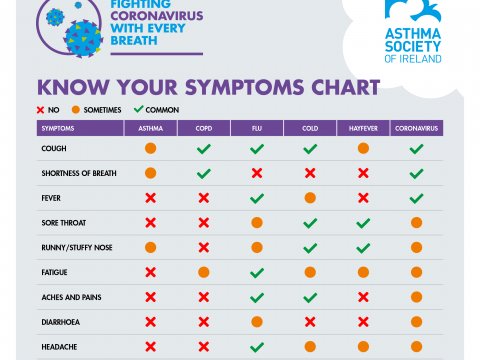
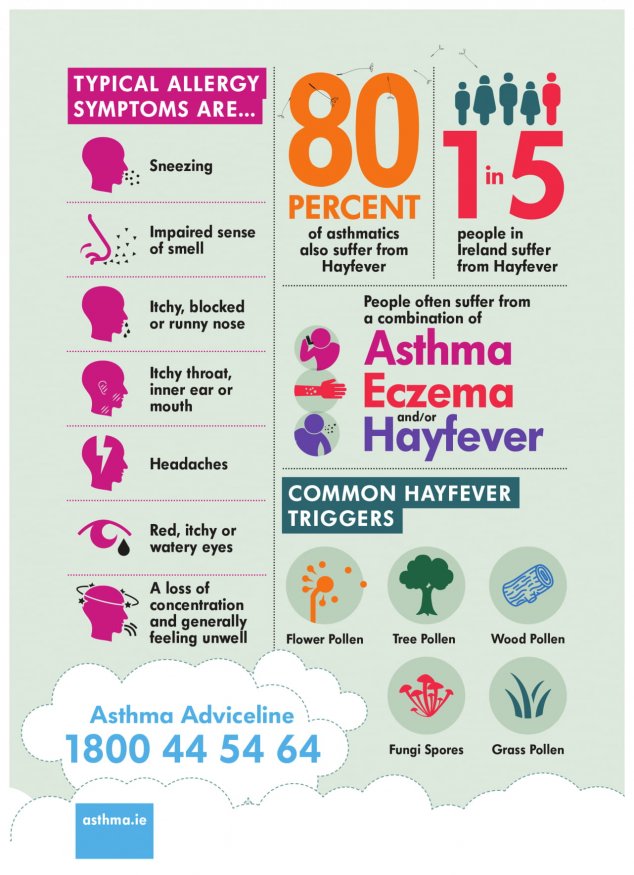
Have any questions about asthma or hayfever? Use our WhatsApp nurse messaging service
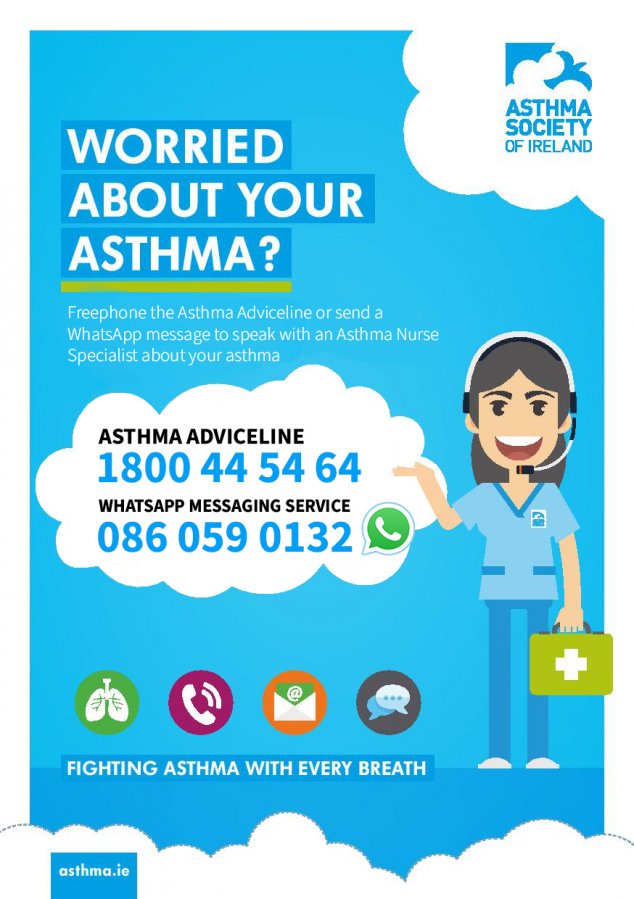
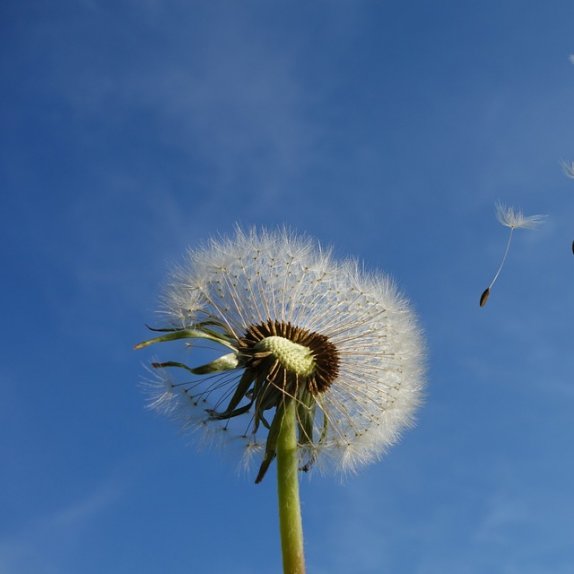
Hayfever is very common in Ireland and up to 80% of people who have asthma also have this condition.
Both asthma and allergic rhinitis are caused by an allergic reaction and are related conditions linked by a common airway. Many of the same allergens are known to trigger asthma and allergic rhinitis.
- If allergic rhinitis is treated effectively it could reduce asthma symptoms and may even help prevent the development of asthma.
- If you have asthma hayfever can make your symptoms worse, so the most important step you can take ahead of the pollen season is to make sure your asthma is under control. If you don't already have an Asthma Action Plan to help you manage your asthma then get one today.
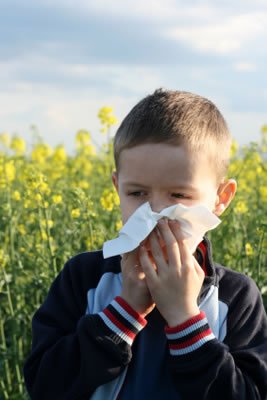
There is currently no cure for either hayfever or asthma, but in most cases symptoms can be controlled.
Some treatments require a prescription from a doctor but others can be purchased over the counter. Speak to your community pharmacist who can advise on the best non prescription treatment for you.
Start treatment early if you can. To help you to do this, identify when your symptoms start and what time of year is worst for you. This can help you determine what is triggering it, as different pollens and spores are active at different times of the year.
For more ways on how to treat asthma + hayfever, click here
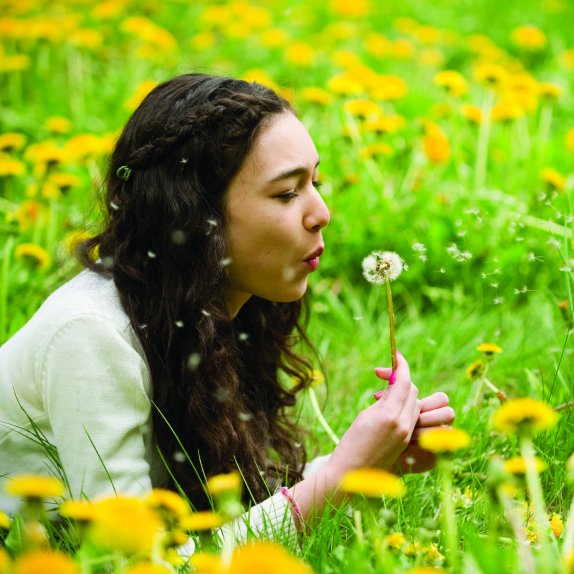
When you have an allergy your body reacts when you come in contact with a particular allergen or trigger. In hayfever/rhinitis when one of these allergens is breathed in, there is an immune response in the lining of the nose. This causes the nasal passages to become swollen and inflamed.
- Symptoms occurring mainly in spring and summer are usually triggered by pollen from grasses, weeds and trees. This is called seasonal rhinitis, and is commonly known as hay fever.
- When problems occur all year, this is called perennial rhinitis, and they are usually triggered by house dust mite, animal dander or mould spores.

